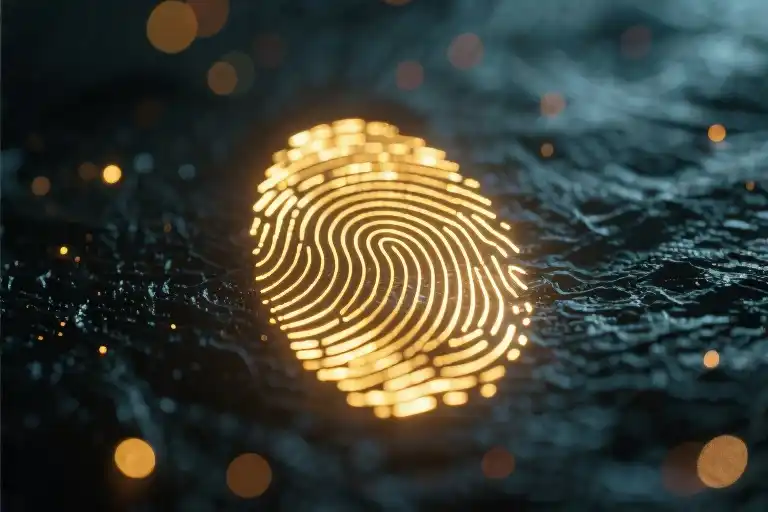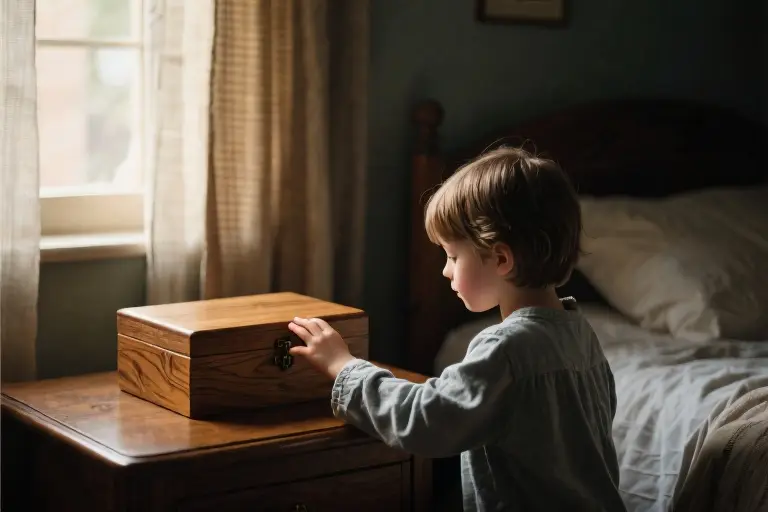The digital clock glowed 2:37 AM in the frigid hotel room, its pale light etching shadows across my mother’s sleeping face. Somewhere three floors below, a elevator pinged in the empty lobby. I pulled the scratchy blanket tighter around my shoulders, struck by the quiet realization: the girl who once danced through Barcelona’s alleys with sangria-stained laughter would never accompany me on these family trips again.
Through the thin walls, I could hear my college friend Sarah snoring in the adjacent room – the same Sarah who’d watched me haggle with a Venetian gondolier last summer while tipsy on spritz. Yet here in Kyoto with my tiny family of three, I’d spent dinner mentally calculating emergency exits and Googling “nearest hospital.” The difference wasn’t the country or even the company. It was the invisible weight in my carry-on: four years, two months, and sixteen days since I became the adult in the room where my father’s absence sat louder than any suitcase.
Most travel blogs don’t mention how grief repacks your luggage. They’ll tell you to roll clothes to save space, never about how loss compresses your capacity for carefree wandering. My cousins still post Instagram reels of their parents handling all the train schedules and hotel check-ins, while I’ve memorized the Japanese phrase for “my mother has a heart condition.”
Outside, a vending machine hummed to life as someone bought a midnight drink. I watched the ice crystals form on our window – the same pattern that had decorated the funeral home windows that winter morning when I last saw my father. Travel after loss becomes a series of these unexpected echoes: a particular shade of twilight, the way certain airports smell, a random song playing in a convenience store. You learn to navigate two landscapes simultaneously – the one on your Google Maps, and the one in your memory.
Somewhere over the Pacific on our flight here, I’d noticed my mother’s hands trembling during turbulence. Not from fear, but from the Parkinson’s diagnosis she’d hidden for months. That’s when I finally understood: this trip wasn’t about cherry blossoms or temple visits. It was about learning to be the steady hands when hers couldn’t be, about finding joy in the spaces between vigilance. The kind of travel wisdom no guidebook prepares you for.
As dawn’s first light crept across the tatami mats, my phone buzzed with Sarah’s message: “Ready for our bike tour later?” I glanced at my mother’s medication organizer on the nightstand, its compartments neatly filled. Two different itineraries for the same city – one mapped in adventure, the other in responsibility. Both valid. Both true.
When Travel Becomes a Checklist of Responsibilities
The fluorescent digits on the hotel alarm clock glowed 2:37 AM as I lay motionless, listening to the rhythmic breathing of my mother and sister. Somewhere in this unfamiliar city, my college friend was probably still dancing at a pub, carefree as we’d been during our backpacking trip through Southeast Asia last monsoon season. That version of me – the girl who’d laughed when realizing she’d forgotten her passport at a Bangkok hostel – now felt like a character from someone else’s travel memoir.
Family travel after loss carries a different weight. Where I once measured trips by spontaneous adventures, I now count safety checks: Did I research neighborhood crime rates? Are the hotel windows lockable from inside? Is Mom’s medication clearly labeled? A recent survey by the Grief Recovery Institute found 72% of bereaved individuals report significantly heightened travel anxiety, particularly when responsible for surviving family members. The numbers validated what my body already knew – trauma rewires how we navigate unfamiliar spaces.
Psychology explains this shift through episodic memory networks. That moment four years ago – the scent of disinfectant in the funeral home, the unnatural waxy stillness of my father’s face – created neural pathways that now fire unexpectedly. A hotel corridor’s fluorescent lighting might mirror the hospital where we said goodbye. The hum of airplane engines recalls the flight home after the burial. Unlike the contained sadness of grieving at home, travel unpredictably activates these connections through sensory triggers we can’t anticipate.
Yet the exhaustion runs deeper than memory. As the designated planner in our family of three, I’ve unconsciously absorbed roles my father once held – navigator, decision-maker, risk assessor. During our Kyoto temple visit last spring, while other families debated which souvenir stalls to browse, I was mentally calculating: Are these stone steps too steep for Mom’s knee? Is the crowd density safe? The mental load of planning trips multiplies when you’re compensating for absence.
What surprises me most isn’t the responsibility itself, but how differently I respond compared to peer travelers. Last winter, when my cousin lost her luggage en route to Cancun, she Instagrammed the mishap with laughing-crying emojis. Had that happened to us, I’d have reconstructed our entire itinerary around the delay, phoned the airline three times, and probably cried in a bathroom stall. There’s a particular loneliness in realizing your friends still inhabit that carefree travel mode you’ve permanently lost access to.
The shift manifests in subtle, exhausting ways. I now pack like a field medic – motion sickness bands, electrolyte packets, translated medical phrases tucked behind my hotel key card. Google Maps gets bookmarked with emergency clinics near each attraction. Where I once prized window seats for views, I now choose aisles for quicker exit access. These precautions aren’t irrational; they’re the new normal for small family vacations when you’re the de facto first responder.
Perhaps the cruelest irony is that the very trips meant to provide escape become hypervigilance marathons. That Bangkok hostel memory resurfaces sometimes – six of us giggling as we rode a tuk-tuk to the embassy, the driver joking about ‘lost passport special price.’ The stakes felt thrillingly low because we were temporary visitors in each other’s lives. With family, every decision carries the weight of permanence – a mother’s safety, a sister’s comfort, the fragile ecosystem we’ve rebuilt. There are no take-backs in this version of travel.
But here’s what the anxiety metrics don’t capture: the quiet moments when the weight lifts. That morning in Kyoto when Mom insisted on choosing our lunch spot, pointing confidently to a tiny soba shop despite not reading Japanese. The afternoon my sister navigated us through Tokyo’s subway using an app she’d secretly studied. These flashes remind me that while trauma changed our travel DNA, it didn’t erase our capacity for joy – it just redesigned the blueprint.
The Invisible Backpack of Responsibility
The fluorescent lights of the airport arrivals hall hummed overhead as I counted our bags for the third time. Three suitcases, two carry-ons, one mother. Wait. One mother?
That heart-stopping moment when I turned to find my mom had vanished near the currency exchange booth – those ten minutes of running through worst-case scenarios before spotting her calmly comparing biscuit prices at a newsstand – taught me more about family travel after loss than any guidebook could. In our small family unit, I’d unknowingly strapped on an invisible backpack filled with roles I never signed up for: travel agent, bodyguard, translator, and emotional caretaker all in one.
The anatomy of this weight reveals itself in subtle ways:
- My left hand always hovering near my mother’s elbow in crowded spaces, a physical manifestation of the vigilance I can’t switch off
- The mental checklist running behind every smile: Did I pack her medications? What if the hotel elevator breaks? How do you say ‘heart attack’ in Thai?
- The way I position myself between her and any potential chaos, whether it’s an overzealous street vendor or an uneven sidewalk
What stings most isn’t the responsibility itself, but the realization that my peers traveling with both parents move through the world differently. Their family vacations still contain pockets of childish regression – letting dad handle the rental car paperwork, mom knowing exactly which snack would cure their airsickness. Meanwhile, I’ve become the designated adult in permanent marker, my childhood passport stamped ‘expired’ by circumstance.
A reader from Minnesota wrote to me about her cruise with elderly parents, her carry-on containing:
- Notarized medical power of attorney copies
- A folder of everyone’s prescriptions with generic names
- Noise-canceling headphones (for when the weight of decisions became deafening)
We exchange these survival tactics like wartime correspondents, those of us parenting our parents while still needing parenting ourselves. The irony isn’t lost on me – that the very trips meant to provide escape instead highlight what we can never escape from. Yet in unspoken moments, like when my mom slips her hand in mine during turbulence or laughs at her own terrible map-reading, I catch glimpses of something resembling balance. Not the carefree abandon of before, but a new kind of lightness that comes from sharing the load we’ve been carrying alone.
Perhaps this is the paradox of small family travel after loss: the roles we resent also become the threads stitching us back together. My mother’s trusting silence when I take the hotel key isn’t helplessness – it’s her gift of letting me be needed. And sometimes, when she insists on navigating the subway or surprises me with her own researched dinner spot, I feel the backpack straps loosen just enough to breathe.
Lightening the Load: 5 Ways to Ease Family Travel Stress
The weight of responsibility feels heaviest at 2:37 AM in a foreign hotel room. You’re mentally reviewing tomorrow’s itinerary for the third time while your mother sleeps soundly beside you. This wasn’t how travel used to feel before you became the designated planner, navigator, and de facto guardian of your small family unit.
1. The Delegation Dance
Start small by relinquishing control over inconsequential choices. Let your mother pick between two pre-vetted lunch spots (“The Italian place or the seafood bistro?”). Hand your teen cousin the hotel’s neighborhood map to identify nearby pharmacies. These micro-delegations serve dual purposes: they lighten your mental load while giving family members purposeful participation. I learned this when my mother unexpectedly chose a tiny Kyoto noodle shop over my carefully researched restaurant – her radiant smile as we slurped udon together made me realize joy exists beyond perfect planning.
2. Safety Nets That Actually Help
Anxiety thrives in uncertainty. Create tangible safeguards:
- Program local emergency numbers into everyone’s phones under “ICE” (In Case of Emergency)
- Book accommodations with 24-hour front desks (even if it costs $15 more per night)
- For aging parents, consider wearable GPS devices more discreet than “senior trackers” – look for stylish smartwatches with fall detection
These precautions occupy less mental space than vague worrying, freeing you to actually enjoy that museum tour.
3. The 60-Minute Mental Vacation
Designate one guilt-free hour daily where you’re “off duty.” At a Lisbon café last spring, I announced: “From 3 to 4 PM, I’m just a woman drinking espresso.” No checking Mom’s location, no researching tomorrow’s train schedule. The world didn’t collapse. In fact, my mother proudly navigated us back to the hotel using her newfound tram map skills.
4. Memory Anchors
Incorporate subtle tributes to departed loved ones without derailing the trip. Visit a park they enjoyed, order their favorite dessert to share, or simply light a candle at dinner. These moments acknowledge absence while creating new family traditions. During our Barcelona trip, eating churros con chocolate at my father’s preferred café became our bittersweet morning ritual.
5. The Backup Brigade
Compile a “Travel SOS” contact list including:
- Your country’s embassy/local consulate
- An English-speaking doctor (find via International Association for Medical Assistance to Travelers)
- A translation app volunteer (apps like TalkTab connect you with human translators)
Keep this as a shared note everyone can access. Knowing help exists eases the protector’s burden.
The paradox of responsible travel is this: The more you try to control every variable, the less you actually experience. These strategies won’t magically restore your pre-loss carefreeness, but they’ll carve out breathing room between the spreadsheets and safety checks. That space – however small – is where unexpected joy might sneak in.
Finding New Joys in Family Travel
The café smelled of roasted chestnuts and old wood, the same way my father had described it thirty years ago when he backpacked through this town. I wasn’t prepared to find his black-and-white photo behind the counter—a grinning 22-year-old version of him frozen between two German students in the owner’s “regulars wall.” My mother’s fingers trembled against the glass frame, and for the first time since his funeral, we laughed until tears came at how little his haircut had changed.
This became our new travel currency: not the absence of grief, but moments where his memory surfaced unexpectedly like a shared secret. A grief counselor later told me this was “post-traumatic growth”—not replacing the old happiness, but letting it evolve. She used a phrase that stuck: “New joys grow around loss like vines on a trellis, different but still alive.”
When Memories Become Travel Companions
Last spring, a reader named Sarah emailed me about taking her widowed mother to Santorini—her parents’ honeymoon destination. They recreated an old photo of her father balancing two wine glasses on a donkey’s ears, except now her mother was the one making silly faces. “It hurt like pressing a bruise at first,” she wrote, “but by sunset we were toasting with the same cheap rosé they’d drunk in 1987.”
These stories taught me what no guidebook could: that healing travels aren’t about avoiding painful reminders, but discovering which memories still hold warmth. The Japanese call this natsukashii—nostalgia that comforts rather than wounds. On our next trip, I deliberately booked a ryokan with paper walls like the one Dad loved in Kyoto. At 3 AM, hearing my mother’s quiet snores through the thin panels, I realized this was our version of carefree now—being unselfconscious enough to snore.
The Alchemy of Small Surprises
Traveling with loss means becoming an alchemist, learning to transform mundane moments into something precious. My mother’s first time using Google Translate to order frog legs in Lyon became our favorite dinner story. The wrong train to Ghent that led us to a lace shop run by nuns became “our little detour” rather than a failure. Psychologists call this positive reappraisal, but I think of it as collecting seashells—not the perfect ones you hunt for, but the chipped ones that somehow shine brighter when wet.
A family therapist I interviewed suggested creating “memory anchors”—small rituals that honor the past while making new traditions. For us, it’s buying one tacky souvenir per trip (Dad’s weakness was snow globes). In Lisbon last month, my mother surprised me by picking a glow-in-the-dark Cristo Rei statue. “Your father would’ve hated it,” she said, grinning as she tucked it between our socks.
The Unexpected Gifts
Grief reshuffles what travel means. Where I once craved adrenaline, I now watch for the way morning light catches my mother’s silver hair in new cities. The Instagram-perfect shots matter less than the blurry ones where we’re both mid-laugh over spilt coffee. I’ve learned to pack lighter in every sense—carrying just enough memories to feel accompanied, but leaving space for what might still bloom.
Perhaps this is the secret no one mentions about traveling after loss: that joy doesn’t disappear, it just changes its hiding places. You’ll find it in the pause before sharing a familiar joke with new scenery as backdrop, in the quiet pride when your mother navigates the metro alone, even in the hotel nights when you lie awake grateful for the weight of someone breathing safely nearby. The girl who danced through foreign streets still exists—she’s just learned to waltz while holding other hands steady.
As the ryokan’s dawn light crept across our futons that morning, I noticed my mother had stolen half my blanket again. Some things, thankfully, never change.
The pale morning light crept through the hotel curtains as I adjusted the blanket over my mother’s shoulders. Her fingers clutched the fabric tightly even in sleep – a habit she’d developed since father’s passing. That’s when I noticed it: tucked beneath her pillow, a packet of warming patches she’d secretly brought for my chronic back pain.
Four years of being the family’s compass during travels had taught me to anticipate every contingency, yet I’d missed this quiet act of care. The realization settled like snowflakes – perhaps vulnerability wasn’t the antithesis of responsibility, but its silent companion.
The Lightest Luggage
We spend years perfecting the art of packing – rolling clothes to save space, weighing suitcases to avoid fees, memorizing TSA regulations. But no guidebook prepares you for the invisible weight we carry after loss. That morning, I finally understood: the most revolutionary travel hack isn’t about minimizing belongings, but about making room for contradictions. To simultaneously hold:
- The spreadsheet of emergency contacts and the willingness to get lost down cobblestone alleys
- The first-aid kit with mother’s medications and the courage to try unfamiliar street food
- The scanned copies of everyone’s passports and the permission to cry when a stranger’s laugh sounds like father’s
An Invitation
There’s an unspoken hierarchy in travel storytelling – Instagram favors the fearless solo backpacker, magazines romanticize couples’ getaways. But what about those of us navigating the in-between? The daughters who book wheelchair-accessible tours while grieving, the sons who translate menus while missing their father’s voice?
Your story belongs here too. In the comments, share:
- One responsibility you’ve shouldered during family travels
- One small moment that surprised you with joy
Because sometimes the bravest thing we pack isn’t a universal adapter or neck pillow, but the truth that we’re learning as we go. And that’s enough.





